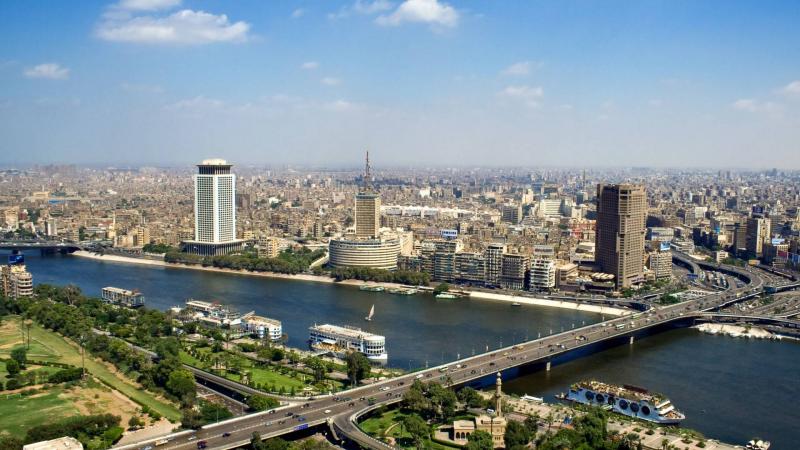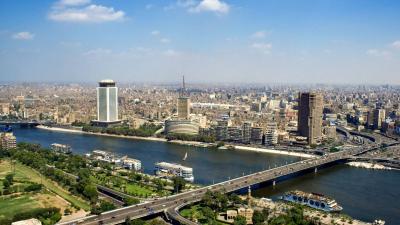I am warning that the Egyptian society is in danger! This is not a nostalgia for the past we lived in the 1950s, but unfortunately, it expresses a serious imbalance in social cohesion and sense of belonging, accompanied by abominable classism and unlimited greed to make money by any means possible, among other dangerous phenomena that the state should prioritize. I also call on social science professors to study these issues and how to deal with them in order to reign in this dangerous situation and its implications for the future of the nation.
I will start with a brief overview of the past I experienced in the historic Shubra district, when my late father was an Arabic teacher, and my late mother was completely dedicated to raising eight children at all stages of education. My father always told us that success comes before achievement, repeatedly reminding us of the verse: "And those are the successful," referring to those who achieved what they sought and earned their rewards and the rewards of those who followed them.
We learned for free at Al-Ashraf Primary, Shubra Preparatory, and Tawfikia Secondary schools, and we all excelled thanks to God and our parents’ care. During that time, we only focused on excellence despite life's difficulties, and none of us ever thought to ask about another's religion. We never felt any discrimination in living standards, as social peace prevailed.
I later joined Qasr Al-Aini Medical School with an annual excellence grant. When I became an intern, I received my first salary of 15 pounds and quickly bought fruits with that salary to share joy with my parents and siblings!
In contrast to the current era, we find significant differences that warn of a dangerous social division. I agree entirely with the esteemed journalist Amina Khairy in her analysis of class development in Egypt over the ages. She noted that the middle class has relied on itself and its capabilities to build itself through persistent efforts in education, work, upbringing, and training, fighting against the odds to push itself and its offspring toward the top with all its iron will and capital rooted in education and its cultural framework.
However, ongoing economic hardships severely affect this class, which is described as the backbone of economic development and a key resource for human capital. It is both angry and surprising that the state talks a lot about providing social protection for those with limited and no income, which is indeed its duty, while the middle class helps the state and alleviates its social responsibility through charitable projects and financial support for these classes.
The manifestations of abominable classism appear in many areas, signaling a division within the nation. For instance, the total number of classrooms in public schools is 46,317 while private schools have 88,644. The total number of students in these schools is 25,657,984. Unfortunately, the student density in public school classrooms, which accommodate the majority of students, is extremely high—more than double that of private schools—with significantly lower teacher salaries and inadequate facilities. This forces citizens to resort to high-cost private schools, creating a heavy burden on families, many of which do not focus on teaching the mother tongue, Arabic, instead prioritizing foreign languages, which is entirely inappropriate for Egypt and its history and contradicts the provisions of the Egyptian Constitution.
A mere glance at interviews for admission to private schools, purchasing cars, or acquiring apartments from real estate development companies shows that if you are socially unqualified, you will not get what you want! Recently, I happened to watch a television interview with a woman announcing a joyous celebration for what she referred to as a "fashion show" for dog clothes. She claimed that this aims to spread joy and to let people know that dogs can wear clothes like humans! She mentioned there is a jury to choose the best dog costume, ending with a celebration of a dog and a dog's wedding amidst the audience's cheers.
Undoubtedly, everyone is free to enjoy what they want, but I object to spreading such images that undoubtedly provoke anger and sorrow among many who suffer from life’s hardships. It also indicates what we must avoid regarding abominable classism; one does not need to be bombarded with intense advertisements soliciting donations for the needy while simultaneously urging the rapid purchase of chalets and villas at million-figure prices, affordable only to about 15,700 millionaires in Egypt, according to a recent report by Henley & Partners.
In my opinion, this represents a serious social disaster that I and many others have warned against, but it seems that the government does not give it due attention. Parents take pride in their children mastering foreign languages while they struggle with Arabic. Moreover, most shops display their signs in foreign languages, despite a law mandating that signs be written primarily in Arabic, with foreign languages included if necessary. The examples of foreign names that some believe reflect sophistication and progress are countless, while all developed countries reject speaking in languages other than their own.
It is worth noting that the Arabic language is one of the oldest languages that have preserved their existence, vocabulary, and concepts to this day. Arabic is the fourth most widely spoken language in the world, recognized as an official language by 27 countries, and is one of the richest languages globally, encompassing all forms of expression in its roots. It is called the "language of the Dhad" as it contains the only letter that is the hardest to pronounce for non-Arabs. Arabic is experiencing a great crisis, prompting the ISESCO Organization based in Morocco to voice its concerns, stating that "Arab countries suffer from an identity crisis." Identity indicates the shared basic features of a group of people, distinguishing them from others, and it acts as a cornerstone of national security.
Mastery of foreign languages is urgent in this era, and it should be encouraged, but never at the expense of our mother tongue, of which we should take pride, as is the case in all civilized countries. I demand that the government, especially the Ministries of Culture and Education, and media institutions work to preserve our language and activate the laws that mandate writing names in Arabic primarily. Additionally, I call for a comprehensive review of the methods used to teach this language, starting from kindergarten and lasting up to three years in an easy and simplified manner, then introducing the foreign language afterward.
**Respect for the Law**
The law is the framework regulating the relationships between individuals and between them and state institutions. The measure of a society's civilization is the extent of the law's application therein. Western societies did not arrive at this coincidentally but after many years of fostering moral values in each individual from a young age, alongside the firm will of the officials in these countries, where everyone is equal before the law, and all social and class distinctions vanish under the mantle of justice.
Sadly, we have long lacked these principles; the law can easily be applied in our reality to one group but not to another! There are indeed those who are above the law, and a belief has developed among citizens that adhering to the law is a sign of weakness and helplessness; to avoid problems, one must comply as long as they are being monitored! This is evident daily when stopped at traffic signals where a traffic officer, absent in civilized worlds, isn't there, and there are tricks and means to circumvent the law, whether through connections or bribery.
This is dangerous, and we must admit it to initiate corrective measures that begin with instilling moral values in our children, reinforcing the principle that "everyone is equal before the law," and concluding with severe penalties and constant monitoring. Can we aspire to achieve that?




